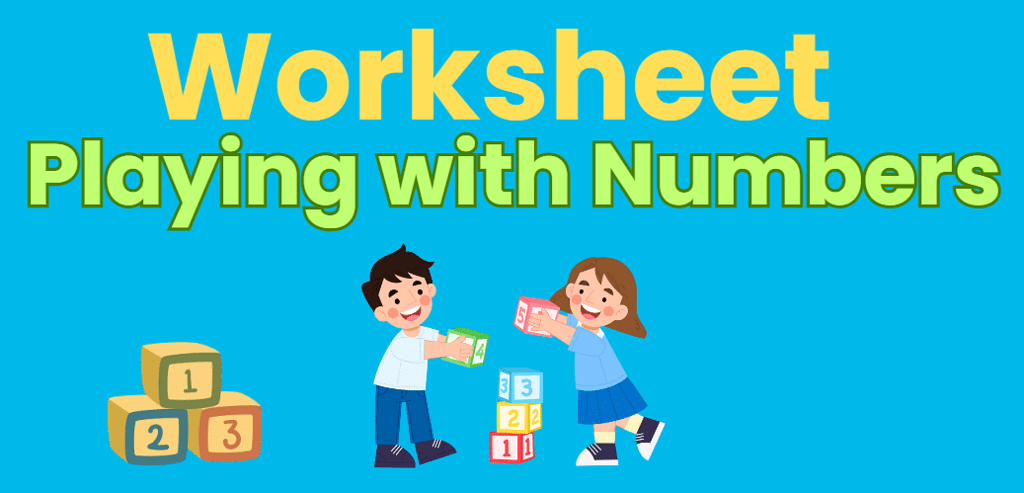Playing with Numbers - 1 Class 6 Worksheet Maths

Q1: Fill ups:
(i) The numbers which have more than two factors are called ________.
(ii) The numbers which are not multiples of 2 are known as ________.
(iii) The two numbers which have only 1 as their common factor are called _________.
(iv) The number which is neither prime nor composite is _____.
(v) Every number is a ________ and ________ of itself.
Q2: True or False:
(i) The sum of three odd numbers is even.
(ii) The sum of two odd numbers and one even number is even.
(iii) The product of three odd numbers is odd.
(iv) If an even number is divided by 2, the quotient is always odd.
(v) All prime numbers are odd.
(vi) Prime numbers do not have any factors.
(vii) The sum of two prime numbers is always even.
(viii) 2 is the only even prime number.
(ix) All even numbers are composite numbers.
(x) The product of two even numbers is always even.
Q3: Answer the following Questions.
(i) Find all the multiples of 13 up to 100.
(ii) Write all the factors of 120.
(iii) Identify the numbers below which are multiples of 45.
270, 295, 305, 315, 333, 360, 400
(iv) The numbers 13 and 31 are prime numbers. Both these numbers have same digits 1 and 3. Find such pairs of prime numbers up to 100.
(v) Write down separately the prime and composite numbers less than 20.
(vi) What is the greatest prime number between 1 and 10?
(vii) Express the following as the sum of two odd primes.
(a) 44
(b) 36
(c) 24
(d) 18
(viii) Write seven consecutive composite numbers less than 100 so that there is no prime number between them.
(ix) Write a digit in the blank space of each of the following numbers so that the number formed is divisible by 11:
(a) 92 ___ 389
(b) 8 ___9484
(x) A number is divisible by both 5 and 12. By which another number will that number be always divisible?
(xi) A number is divisible by 12. By what other number will that number be divisible?
(xii) The product of three consecutive numbers is always divisible by 6. Verify this statement with the help of some examples.
(xiii) The sum of two consecutive odd numbers is divisible by 4. Verify this statement with the help of some examples.
(xiv) Determine if 25110 is divisible by 45.
[Hint: 5 and 9 are co-prime numbers. Test the divisibility of the number by 5 and 9].
(xv) Find the LCM of 12, 16, 24 and 36?
(xvi) Find the HCF of 70, 105, 175
(xvii) You have 24 small bottles of lemonade and 36 large bottles. What is the largest number of equal-sized groups you can make if each group has the same number of small and large bottles?
|
92 videos|353 docs|54 tests
|
FAQs on Playing with Numbers - 1 Class 6 Worksheet Maths
| 1. What are some common strategies for improving mental math skills? |  |
| 2. How can playing number games help improve numerical fluency? |  |
| 3. Are there any online resources available for practicing mental math? |  |
| 4. What role does numeracy play in everyday life? |  |
| 5. How can parents help their children develop strong numerical skills from a young age? |  |


























